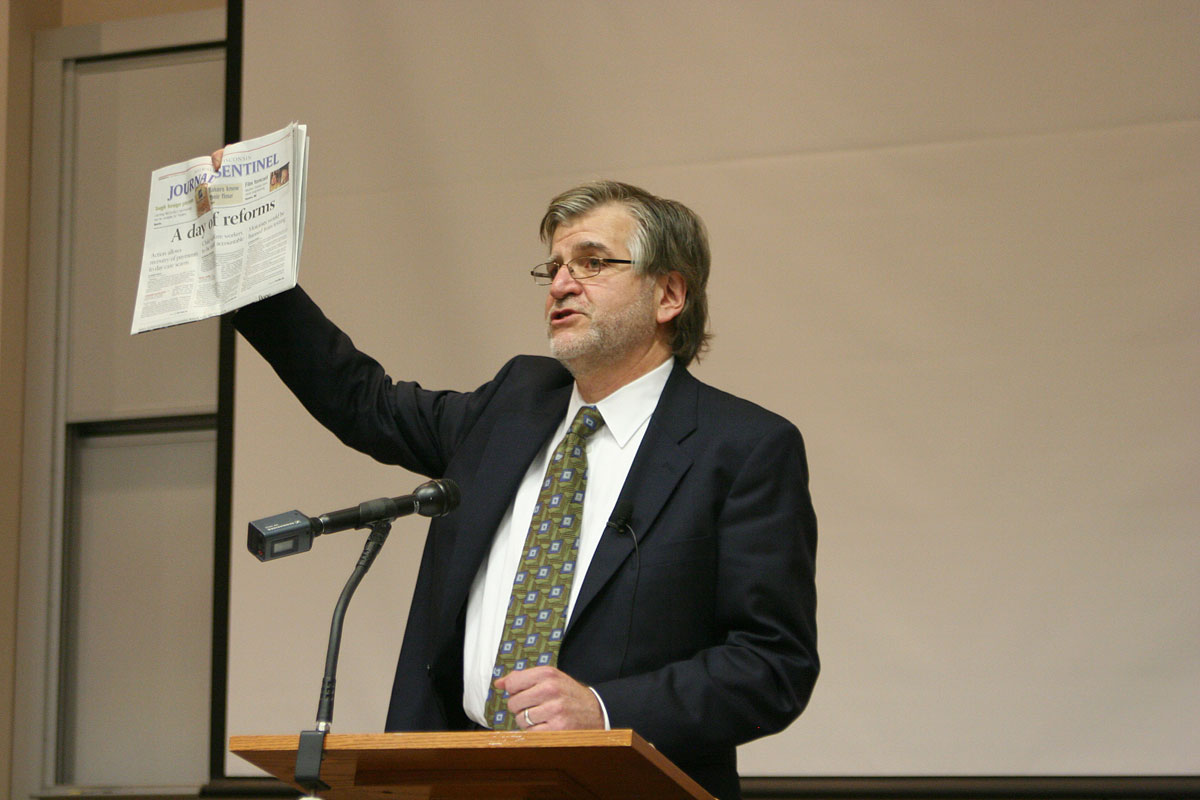An editor who is leading the nation’s journalists through turbulent times delivered a message of hope, tempered with a dose of realism at the 2009 McGill Lecture. Martin Kaiser, president of the American Society of News Editors, delivered the 31st annual lecture on Nov. 4.
Kaiser’s journalism career spans three decades—as a copy boy, reporter and editor. Today, he is the editor of the Milwaukee Journal Sentinel, which has won a Pulitzer Prize during his tenure.
While acknowledging that journalism is “under assault from all sides these days,” he explained how the Internet exploded the business model for newspapers even before last year’s recession. The millions of dollars in revenue once generated by classified ads has disappeared and circulation numbers have taken a hit because newspapers can be read online for free.“What’s interesting is that the readers we’ve held on to have been willing to pay more for the paper,” Kaiser said. “Add these people to our mobile and online readership and we arguably have more readers than ever before. Unfortunately, that doesn’t solve the business model problem.”
Acknowledging that no one seems to have all the answers yet, Kaiser also argued that it’s a liberating time.
“What matters in the future is not the survival of newspapers, television or radio, or even the Internet. The delivery system doesn’t matter,” he said. “What matters is the survival of journalism that tells the truth with courage and connectedness to the communities it serves.”
Investigative and enterprise reporting about the community is key to the future of newspapers, according to Kaiser.
“Our obligation is to tell the truth as best we can determine it through reporting that stands up to careful scrutiny,” he said. “The best journalists are, first and foremost, storytellers telling stories that uncover new information and shine a light where there was once darkness. All the technology in the world won’t change that.”
Editor&Publisher named Kaiser its Editor of the Year in 2009, in part for his commitment to enterprise and investigative reporting during the some of the industry’s worst economic times.
“The seismic shocks in our business haven’t shaken the foundations of journalism,” he said. “No matter the business model for the future, to survive we must take greater chances, be more creative and nimble, use new technology and be more entrepreneurial. However, we must not lose sight of what got us here and what should drive us as we move forward.”


